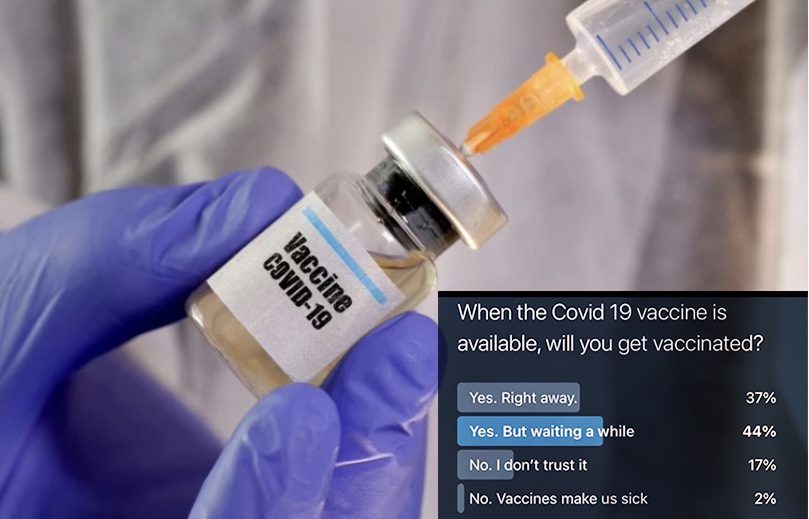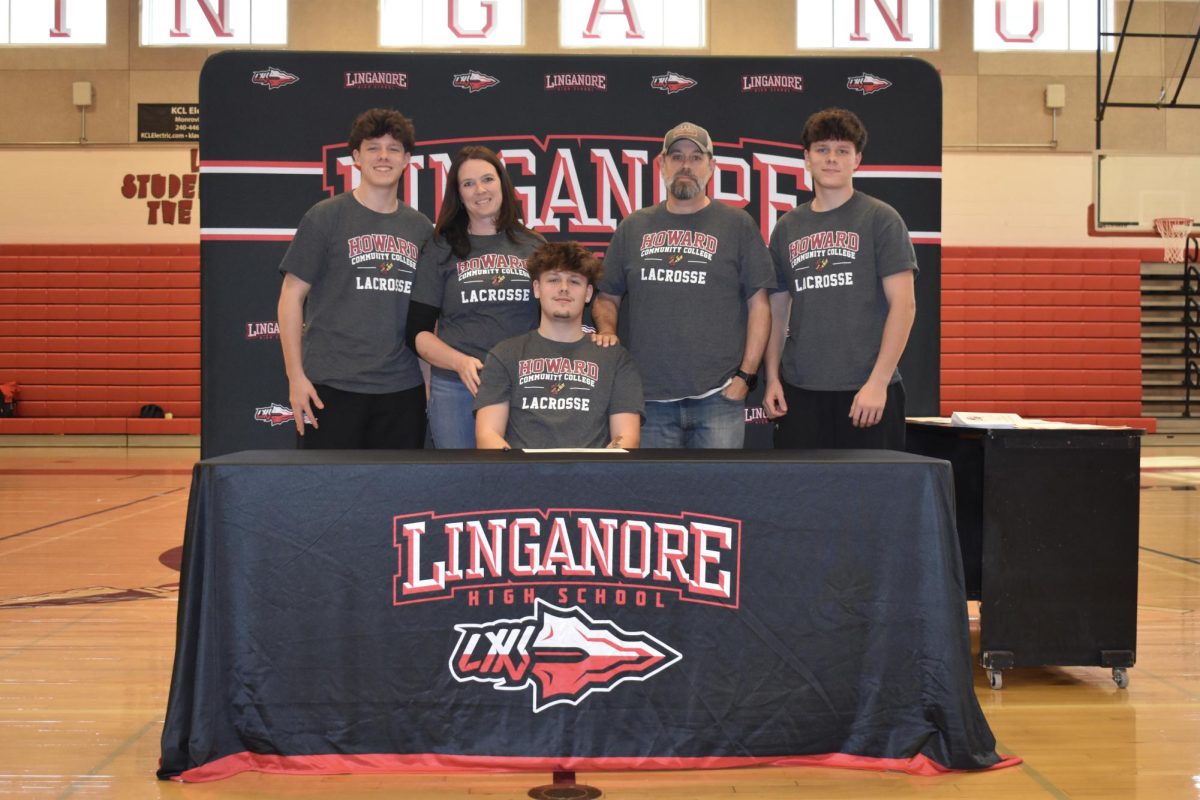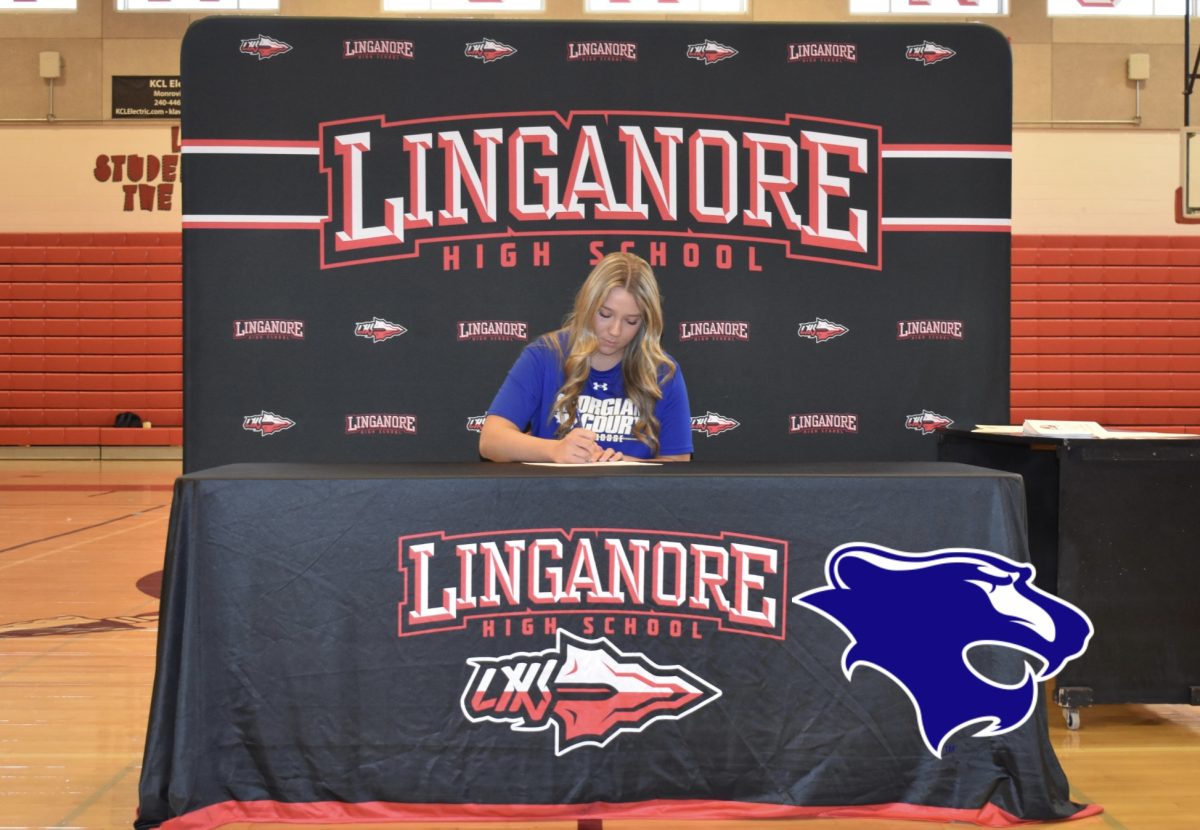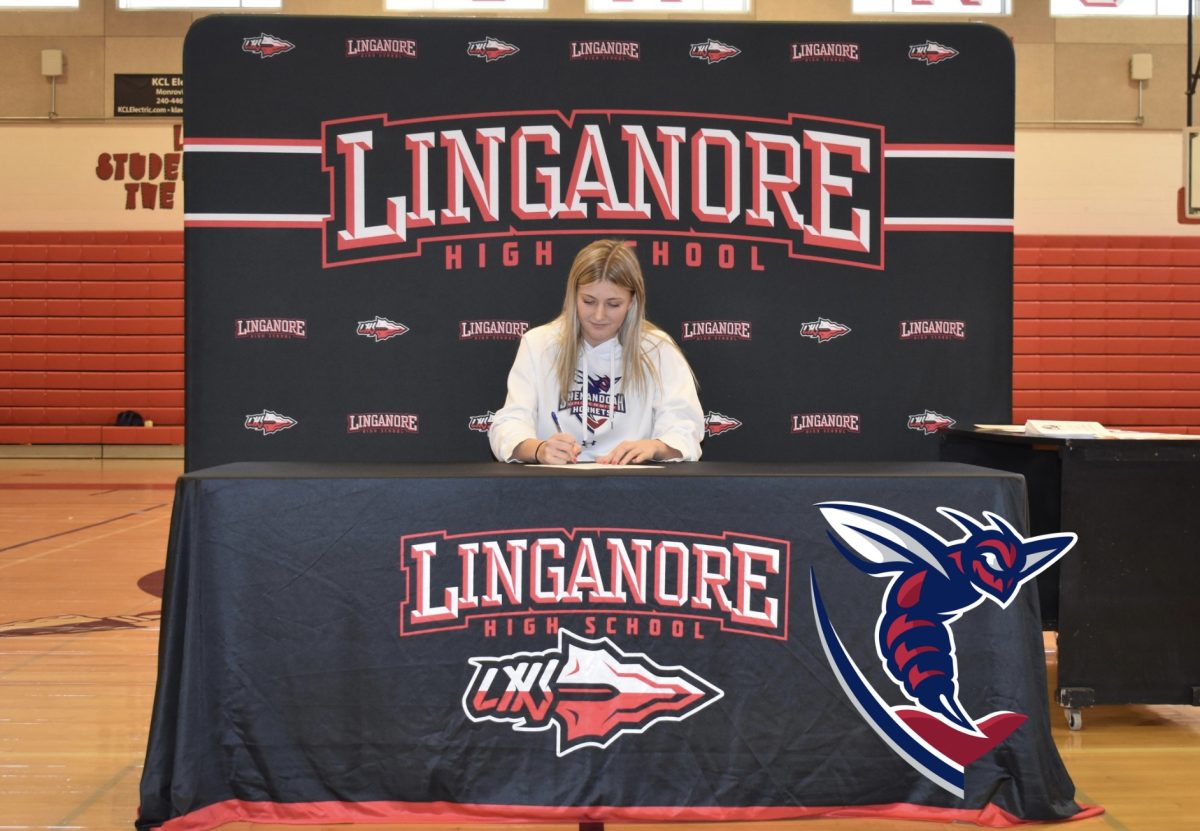COVID-19 Vaccine: Which is the greater risk? Getting sick or getting the vaccine?
“I don’t want to be a test monkey because I don’t want to risk anything going wrong.”
We need a vaccine as soon as possible, but fears about vaccines create additional worries.
October 28, 2020
In the early months of 2020, the COVID-19 pandemic has ruined the lives of those all over the world. The virus has closed down stores, businesses, schools, and many public facilities. If you think we are going to school for Spring 2021, think again.
According to a recent poll in Science Magazine, “Over 50% of Americans aren’t willing to take the risk of the vaccine.” This unwillingness of the vaccine will result in the failure of planning to reopen schools.
Yet doctors and medical specialists are still hard at work researching the solution to normalcy.
The COVID-19 vaccine is necessary to fight the virus off without complications. However, much speculation is being noticed among the citizens in the United States due to the lack of trust in the cure of the virus when it first comes out. Americans fear the complications resulting in medical problems. According to USA Today, “Two thirds of Americans won’t take the COVID-19 vaccine as soon as it becomes available. One in one fourth said that they won’t take it at all.”
According to a Lancer Media poll, 37% said they will get the COVID-19 vaccine right away. Almost half said they will get it but wait a little until they get it. Under 20% said they will not get the vaccine because they won’t trust it, and 2% of people said they will not get the vaccine because they think that it makes them sick.
Will you get the COVID-19 vaccine when it comes out, wait a little then take it, or not take it at all?
“I believe that when the vaccine first comes out it won’t be safe enough to take it right away. I don’t want to be a test monkey because I don’t want to risk anything going wrong. I do believe that a vaccine is crucial for the virus to be reduced. Which is why I am going to wait before I take it,” said sophomore Alex Negussie.
Junior Kellen Fossett doesn’t want to get the vaccine either because of the demand.
“I am not because I don’t think it’s [coronavirus] that dangerous to a guy like me, so I would want the older people and the people with underlying health conditions to get it instead,”said Fossett.
Parent and pediatric infectious disease physician Michael Rajnik is waiting until validation before encouraging the vaccine for his family and himself.
“I would recommend an immunization for my daughter and family members as it is approved for use. It should be noted that vaccines will most likely be distributed in a tiered fashion for high-risk people (elderly, first respondents, healthcare workers). As a healthcare worker, I will definitely seek to get the immunization. The hospital that I work at actually is part of Operation Warp Speed- the name for the immunization development and approval process,” said Rajnik.
Operation Warp Speed is the government initiative to create 300 million doses of a vaccine by January 2021. Although there is a lot of political talk about whether this can happen or not, the effort is on track to deliver these countermeasures. Of all of the frustration with coronavirus, doctors and scientists are on the cutting edge of innovation for the safety of citizens.
“If a vaccine is mandatory, that will be fine by me, but I just want to make sure that it is safe for me to take at first,”said Negussie
There is a minority, though, for religious reasons, who may ask for an exemption.
“I believe that if the vaccine is mandatory it will be unfair for people with religious backgrounds as they will have to unfollow their religion and that is unfair and disrespectful to them,”said Fossett
Immunization may be the right thing for public schools as it may help and stop the spread.
“I think public schools might have a hard time “requiring” this. I think that one thing that can help get kids back into school will be the ability to immunize students, teachers and support workers to stop or slow transmission. I think that everyone associated with large communal gatherings should definitely be considered as an early candidate for immunization. From a public standpoint this is the most logical approach, so I would support it,”said Michael Rajnik.
Many experts are concerned about rushing the vaccine of COVID-19 too quickly, and that the vaccine has to have many trials before it goes out to the public.
“I find it honestly scary that doctors are rushing the vaccine because it will lead to more problems or errors that may happen and end up even possibly making covid worse,” Negussie said.
Fossett believes the rush of the virus is bad, but also its good because at least it means that life can go back to normal quickly.
“Although the rush of the virus may go bad, they do check it before it goes to the public, so I think it’s fine if they rush only a little. We need life to go back to how it originally was,” said Fossett.
Michael Rajnik is tranquil from the rush of the vaccine as the safety procedures will make sure to test the vaccine properly.
“There is no doubt that the immunization has been developed and tested faster than anything in history. It should be noted that some of these immunizations borrow technology from other immunizations developed for other coronavirus outbreaks(SARS and MERS) so they have been tested in humans. i think the most important thing is for everyone to be patient so that we make sure that the immunizations are vetted properly. When the Food and Drug Administration reviews data from the phase 3 studies, they will have been scrutinized as well as any other immunization approved for use,”said Michael Rajnik.






